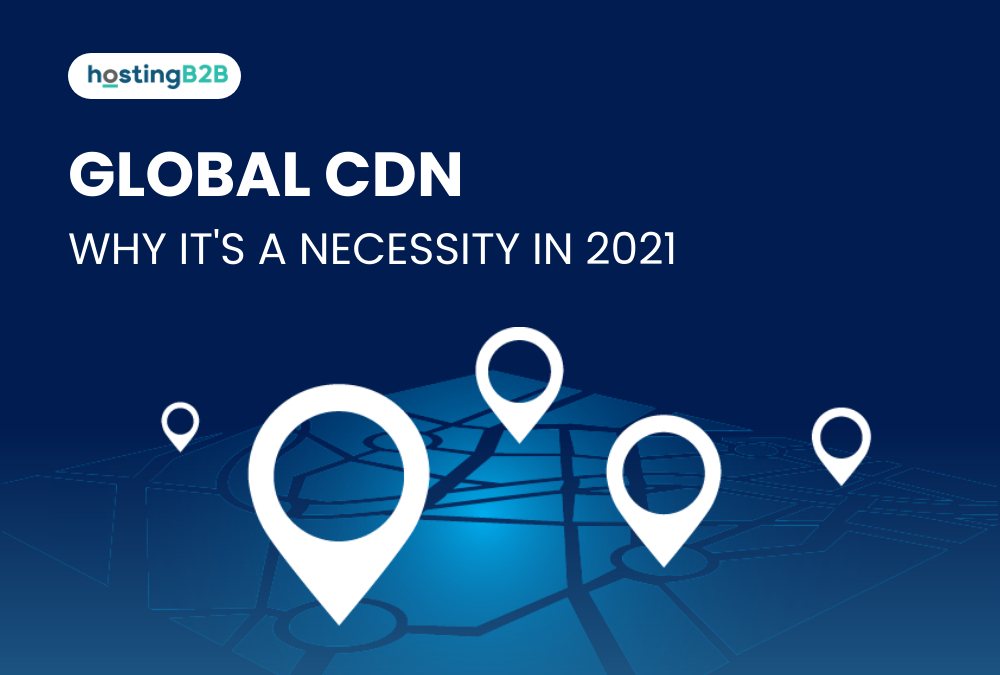Global CDN and Why It’s a Necessity For 2021

What is a CDN?
A content delivery network (CDN) refers to a geographically distributed network of proxy servers and their data centers all linked together with the goal of delivering content as quickly, cheaply, reliably, and securely as possible.
A CDN allows for the quick transfer of assets needed for loading Internet content including HTML pages, JavaScript files, style sheets, images, and videos.
How does it work?
Servers are placed at the internet exchange points (IXP: where ISP networks connect) and data centers are placed at strategic locations across the globe. While it doesn’t host content it does cache content at the network edge and serves the cached content to the website visitor for example, thus improving page loading times. Additionally further optimizations are made improving the security of the data and transfer.

What are the benefits of using a CDN?
Improving website load times:
Website visitors get the data from a nearby CDN server rather from the host server (that is further away), thus experiencing faster loading times. Furthermore hardware optimizations like the use of fast storage solutions e.g SSD’s and software optimizations like load balancing and compression help serve the data even faster.
Remember visitors are more inclined to click away from a slow-loading site
Reducing bandwidth costs:
Every time the host server serves data it consumes bandwidth. Bandwidth consumption cost is a primary expense for website hosting. CDNs reduce the amount of data a host server must provide by serving cached data on their network. This results in lower hosting costs for website owners.
Increasing availability and redundancy:
Large amounts of traffic or hardware failures can and will interrupt normal website function. A CDN distributes network traffic evenly making it easier to handle sudden spikes in traffic. Fail-over measures provide uninterrupted service in case of hardware failure or maintenance by redirecting the traffic to another server.
Improving website security:
One of the most common security vulnerabilities on the internet is the use of Distributed Denial of Service (DDoS) where attackers flood the host server with requests making it unable to respond to legitimate users. A CDN has t multiple data centers and sizable bandwidth as a protective factor against DDoS attacks compared to the host server. Other than DDoS mitigation a CDN provides improvements to security certificates and other optimizations that help move data securely and reliably.
The importance of a good CDN provider:
Held every year since 1956, the Eurovision Song Contest reaches millions of television viewers. It’s at this time of the year that the official website of the Eurovision song contest attracts a lot of attention. And if you are wondering how they cope with the huge rise in traffic the answer is CDN. But it’s not just that.
During the 2012 Eurovision Song Contest semi final the Eurovision.tv website was targeted with a large DDoS attack. And even though at that time they were using a CDN they failed to mitigate it and service went down. It’s at that time that they reached out to Cloudflare, which mitigated the attack and the site was brought back online in time.
Do you need a CDN?
The simple answer YES. Cyber attacks are becoming an everyday affair. No matter how good your website security is, a CDN will provide one more layer of security plus your users will experience faster loading times and uninterruptible service.

Here are some of the other services we provide here At HostingB2B:
Why Hostingb2b Solutions ? Contact us TODAY to find out!
Here are some of the other services we provide here At HostingB2B:
Recommended Posts

The Importance of Regular Website Backups
July 18, 2024




